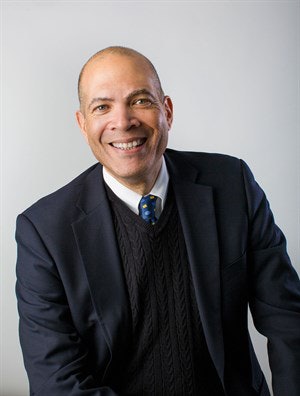When I read that the entire Greek system at a large university has been suspended, or note yet another tragic student death related to hazing on another campus, such sad and bewildering news stands in stark contrast to my own experience of higher education.
 Alan C. Price
Alan C. PriceEarlham College — where I am president and also a proud member of the Class of 1988 — has never had fraternities or sororities. This is a purposeful choice, but not always a popular one. Some have argued or advised that adding Greek life would add new energy to our campus or help us compete with peer institutions. Throughout our 170-year history, we have chosen to follow another path to helping students form lasting friendships and affinities. We aspire to be one community, embracing the incredible diversity that Earlhamites bring to the College, but keeping our focus on the values we share, not the things that separate us from one another.
Earlham is one of the few places I know where people can hold very different views on important issues and still be friends. An alumnus recently told me about a time when student protesters and student counter-protesters shared a bus to, and from, a Washington, D.C. protest, and how they enjoyed their time together. That’s something special, as far as I’m concerned.
Our focus on unity is the primary reason why Greek organizations would not work at Earlham. At their best and at their worst, fraternities and sororities are focused on their exclusivity. They derive their very identity from the ways they stand apart from other similar groups and from the institution as a whole. At Earlham, we offer a very different model. Perhaps there is something about the way we approach community that could be helpful to other colleges and universities.
No one has to pledge to become an Earlhamite. Earlham students do not have to survive “hell week” (although our professors have been known to assign quite a bit of homework from time to time). Campus conduct is sometimes very far from perfect. Rules have been broken. Our students sometimes drink more than is responsible and have been known to misbehave. We have, on occasion, mourned the accidental deaths of students. But I would argue that by fostering a sense of welcoming and belonging, and a shared sense of purpose across campus, we have avoided the potentially corrosive effects of campus organizations and traditions that require secret oaths and exclusive membership.
Earlham was founded by Quakers in 1847. This religious tradition still informs our educational mission and campus community, even though most of our students, faculty and staff are not Quaker. Part of our Quaker legacy are the Principles and Practices that our entire campus community aspires to. These are: respect for persons, integrity, simplicity, community and a commitment to peace and social justice. We certainly are not always successful in living up to these ideals. But having a shared set of standards to guide behavior is endlessly helpful and frequently inspirational.
Students come from almost every state and nearly 60 countries to study in our small Indiana town. We place a particular value on shared governance, so it is commonplace to find students and hourly staff sitting alongside professors and senior administrators in committee meetings. Our campus expects an unusual level of transparency in decision-making. Everyone on campus, including me, is addressed by first names. And with only a little over 1,000 students, we are often able to know each other by name and face.
We are, quite intentionally, the diametric opposite of a secret society. This College is accustomed to trying to solve its problems (and even the problems of the world) through open meetings and public collaboration. Proceeding this way at a time marked by extreme political division and identity politics is very difficult. Yet we attempt to figure out day-by-day how to live, learn, work, teach, protest and grow together. And much of the time, I have to tell you, it works pretty well.
I am not suggesting that other colleges and universities adopt Earlham’s Principles and Practices. Ours are authentic to our community and rooted in our history, but may not fit another place. I should also note that our approach sometimes causes us to move more slowly and cautiously than some in our community would like. Because we have lofty aspirational goals, we are quick to remind each other of all the ways that we fall short.
Yet community goals make Earlham stronger. Having shared values, particularly across our many spectrums of diversity, makes things easier. When a college or university is able to coalesce around a shared understanding of how the members of the campus community should treat one another, amazing things happen. To borrow a Quaker phrase, a way opens. By choosing not to include fraternities and sororities on our campus, we have found a path towards being one community. This choice fosters the well-being and health of all the members of our community.
Our graduates are transformed by the experience of joining together with others not like themselves to build community. Our alumni know how to engage in civil discourse. They know how to listen. They know how to manage a collaborative process involving diverse stakeholders. They know how to lift their voices in ways that seek to build community rather than destroying each other. They know how to lead people and organizations through shared values and a unifying mission. For at Earlham, they have seen that a culture of diversity and inclusion is worth the hard work that it requires.
This spring, students on many other campuses will have the opportunity to rush Greek letter organizations. At Earlham, we will celebrate the end of winter by gathering on a grassy quad at the middle of campus that we call The Heart. There will be no rush. Community members will come as they are. And everyone will belong.
Alan C. Price is president of Earlham College.





















